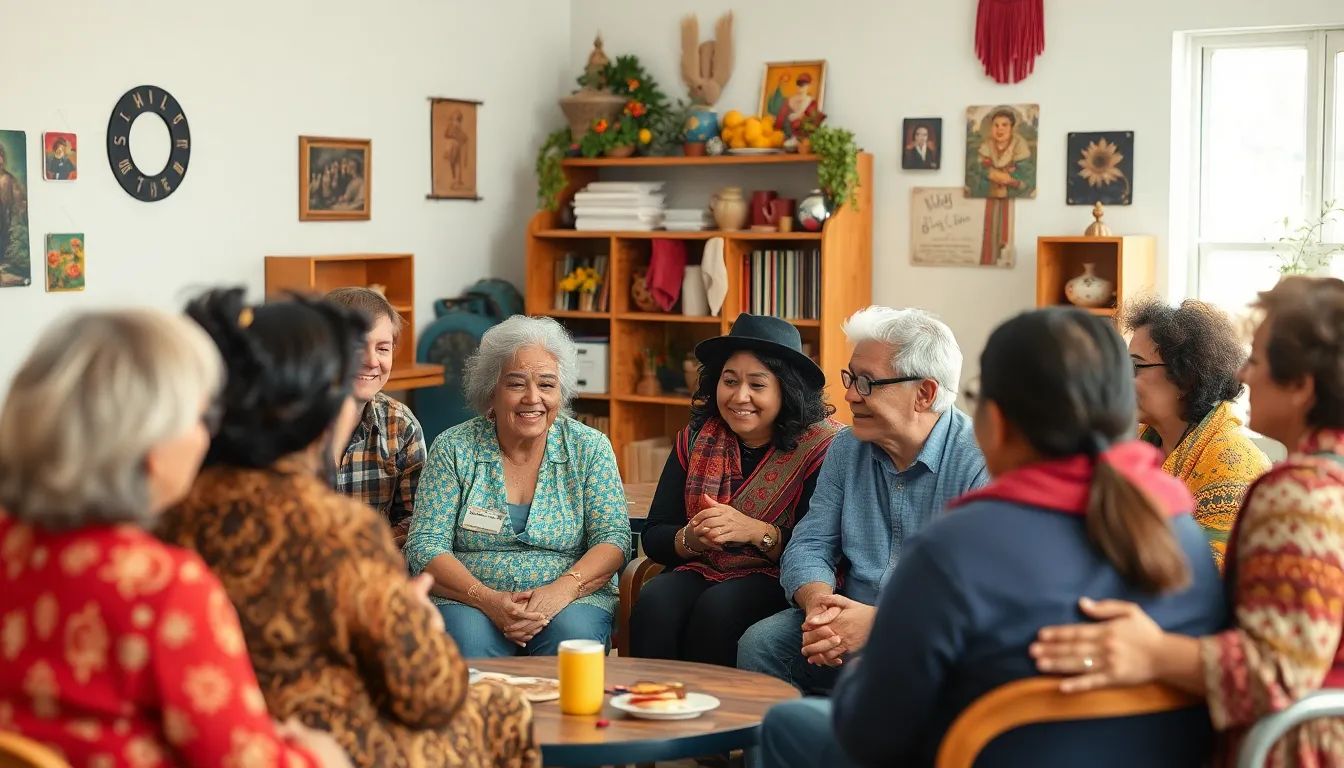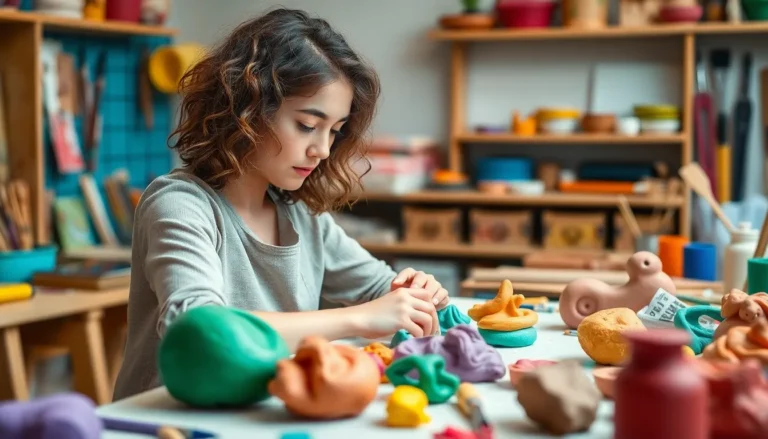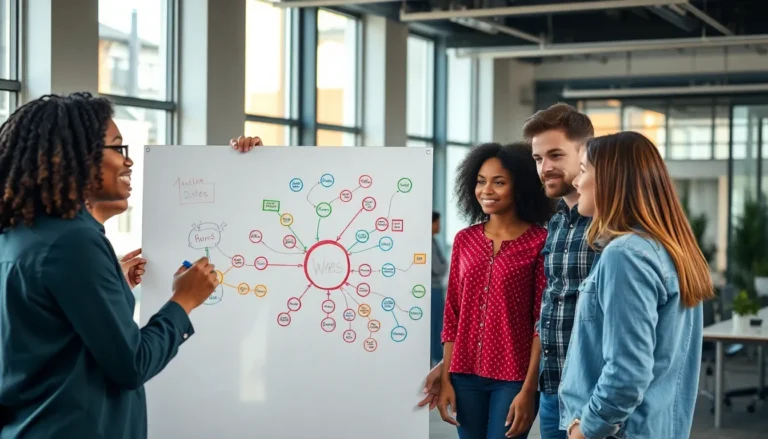Table of Contents
ToggleBeliefs shape our reality, guiding decisions and influencing actions in ways we often overlook. From the mundane to the profound, what we believe can turn a simple Monday into a motivational masterpiece or a catastrophic catastrophe. Imagine believing that you can leap tall buildings in a single bound—sure, it might land you in the ER, but it also sparks the imagination!
Understanding Beliefs
Beliefs significantly influence human perception and behavior. They form the foundation for individual worldviews and impact everyday choices.
Definition of Beliefs
Beliefs encompass convictions held without necessarily requiring evidence. They manifest as statements individuals accept as true or false. Personal beliefs shape attitudes toward a variety of experiences, guiding emotional responses and decision-making processes. For example, a person may believe in their ability to succeed in a new job, thus fostering confidence and motivation. The lack of tangible proof often doesn’t diminish belief strength, as it connects deeply with personal values and experiences.
Types of Beliefs
Beliefs can be categorized into several types, shaping how individuals interpret their surroundings. Core beliefs, formed early in life, often influence behavior and thought patterns. Cultural beliefs arise from shared traditions and practices, dictating group norms and values. Faith-based beliefs, commonly associated with religion, provide spiritual frameworks and community support. Lastly, personal beliefs evolve from individual experiences and reflections, providing unique perspectives on life challenges. Each belief type plays a critical role in shaping behavior and decision-making, illustrating the complexities of human existence.
The Formation of Beliefs

Beliefs develop through various channels and influences, molding an individual’s perception and experiences.
Cultural Influences
Cultural frameworks shape beliefs significantly. Normative values and practices within a culture affect accepted truths. Shared narratives, rituals, and symbols transmit beliefs across generations. Societal expectations often dictate what is viewed as acceptable or taboo. For example, beliefs about gender roles vary greatly between cultures, influencing personal identity and expression. Each culture serves as a lens through which individuals interpret their experiences and interact with others.
Personal Experiences
Personal experiences also play a crucial role in shaping beliefs. Individual encounters, both positive and negative, create a basis for understanding reality. Significant life events, such as trauma or achievement, often lead to deep-seated beliefs. People interpret their experiences uniquely, leading to diverse belief systems. For instance, someone overcoming adversity may develop a belief in resilience, impacting future decision-making. Each experience contributes to the broader tapestry of personal beliefs, further influencing how individuals navigate their lives.
The Impact of Beliefs
Beliefs significantly shape individual realities and decision-making processes. They hold the power to alter perceptions and influence actions in everyday situations.
On Decision Making
Decision-making hinges on deeply held beliefs. Core beliefs often guide individuals toward specific choices. Research suggests that those who believe in their capabilities are more likely to pursue challenging paths. Uncertainty often arises when beliefs conflict with evidence, leading to indecision. Personal experiences mold these beliefs, impacting the confidence one has in their decisions. Outcomes can vary based on the strength of one’s convictions, highlighting the importance of aligning decisions with positive beliefs.
On Behavior
Behavior is heavily influenced by prevailing beliefs. Individuals often exhibit behaviors that reflect their convictions. Cultural beliefs shape social interactions and expectations, creating norms that guide conduct. Studies indicate that belief in certain outcomes can drive motivation, fostering perseverance during challenges. Emotional reactions may also stem from one’s beliefs, affecting responses to various situations. By recognizing these patterns, individuals can better understand and manage their behaviors, leading to more intentional actions in daily life.
Changing Beliefs
Changing beliefs involves conscious effort and a willingness to evolve. Transformation starts with recognizing existing beliefs and their impact on behavior.
Strategies for Change
Awareness serves as the first step in altering beliefs. Individuals can benefit from reflective practices, such as journaling, to identify core beliefs. Engaging in discussions with others exposes differing viewpoints, prompting re-evaluation of personal beliefs. Seeking knowledge through books or courses enriches understanding and nurtures critical thinking. Practicing mindfulness allows for emotional regulation, making it easier to challenge automatic beliefs. Setting achievable goals encourages gradual change, fostering a sense of accomplishment and reinforcing new perspectives.
Challenges in Changing Beliefs
Resistance often arises when confronting established beliefs. Feelings of discomfort can surface, as change may threaten one’s sense of identity. Social influences complicate the process further, as cultural norms may clash with new perspectives. Fear of judgment from others can hinder open exploration of beliefs. Cognitive dissonance, the mental stress from holding conflicting beliefs, can create internal conflict. Ultimately, persistence and support from others play crucial roles in overcoming these hurdles and facilitating a smoother transition towards healthier beliefs.
Beliefs are powerful forces that shape individual realities and influence decisions. They guide perceptions and behaviors while forming the foundation of personal worldviews. Understanding the origins and impacts of beliefs can empower individuals to navigate their lives more intentionally.
The journey of changing beliefs is often challenging yet rewarding. By embracing awareness and engaging in reflective practices, individuals can cultivate healthier beliefs that align with their goals. With persistence and support, transforming beliefs can lead to profound personal growth and fulfillment.







